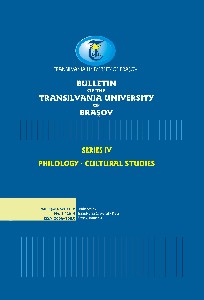Modality or how to personalize a nationalistic discourse
Modality or how to personalize a nationalistic discourse
Author(s): Cristina VâlceaSubject(s): Language studies, Language and Literature Studies
Published by: Editura Universitatii Transilvania din Brasov
Keywords: modality; ideology; representation
Summary/Abstract: Modality is a linguistic means which attenuates and models the straightforwardness of one’s intention (Palmer, 1986) due to either politeness or secrecy. With interesting implications at the morphologic level and vital determinations at the discursive level (Bybee & Fleischman, 1995), modality stands out as a major criterion in the encryption and decryption of the message beyond words. Provided with a generous array of signified items, modality plays a crucial role in the construction of the political message which requires convincing arguments when building up a political vision. Given a politically heated context, modality demonstrates its power in political debates by going far beyond its linguistic context and well into audience’s mental. Fears, tensions, conflicts are awakened in shrewdly modalized messages meant to convince people of the truthfulness of one’s vision. Consequently, this piece of research aims at identifying the modalizers in the discourse of the main two supporters of the United Kingdom’s exit from the European Union: Nigel Farage and Boris Johnson by highlighting the role the modal structures play in the rounding up of the “leave” message.
Journal: Bulletin of the Transilvania University of Braşov, Series IV: Philology & Cultural Studies
- Issue Year: 9/2016
- Issue No: 2
- Page Range: 93-100
- Page Count: 8
- Language: English

